Recap: In our latest blog, you’ve learned about our partner Green Worms, a social enterprise from Kerala, India. Green Worms employs women from self-help groups and gives them the responsibility for the household collection and the waste sorting process. As these are activities with low job market entry barriers, it's a great way to employ women with underprivileged backgrounds.
Besides striving for clean oceans, an essential concern in our work is the social impact we can achieve in the countries we operate in.
Our goal is to create sustainable jobs with clean, safe working conditions for the communities that live alongside our waste management chain.
One of our success stories is our partner, Green Worms. They endeavor to hire women from self-help groups in Kerala, India. These groups are community-based associations with members from similar social and economic backgrounds specifically for women.
The goal of these groups is to make a living by accepting different kinds of jobs and help their members become financially stable. In times of emergency or financial scarcity, the association can grant its members loans from their collective savings.
Beyond their function as a savings and credit group, self-help groups offer women a platform for building solidarity and their own independence. Not only do they provide a much-needed lifeline for women who have been subject to abuse, but also provide them the space to come together and act on issues related to health, nutrition, empowerment, as well as social and gender justice.
The role of self-help groups within waste solution activities
Green Worms is founded on three core principles:
Minimizing waste, diverting waste from landfills and oceans, and improving the lives of people working with waste.
So, how does it work?
Usually, the company intercepts the waste as close to the source as possible by running door-to-door collection services for household waste.
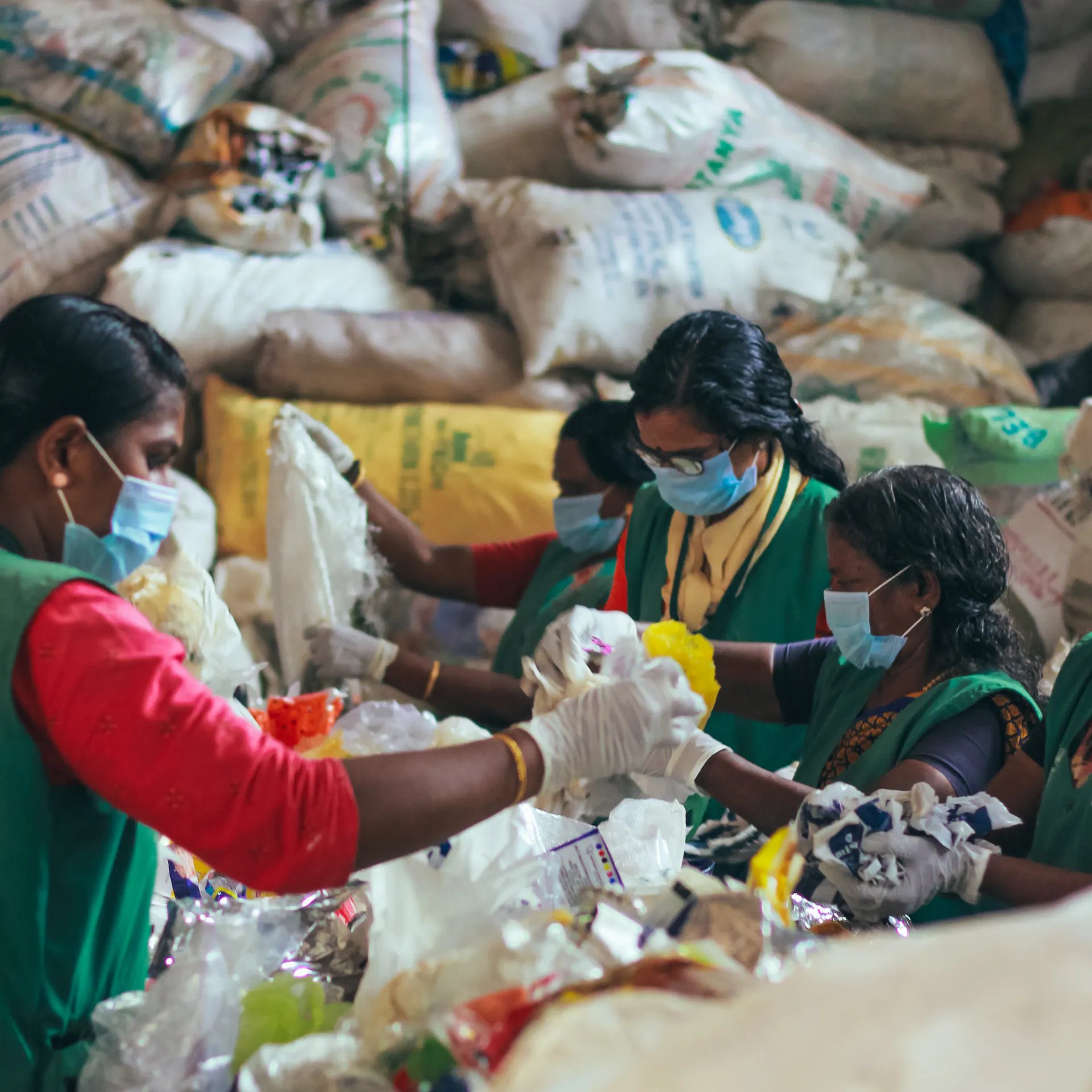
All groups are trained by Green Worms beforehand and equipped with the right gear to ensure that the women can perform their jobs safely.
Impact but with the proper Code of Conduct
CLEANHUB and its partners take the Sustainable Development Goal of safe and clean working conditions seriously. The waste industry has the potential to have the dirtiest, most dangerous, and degrading work environments, particularly at an informal grassroots level.
But we believe it doesn’t have to be that way.
To ensure this, we commissioned a local expert to visit our partner’s sites, where he conducted extensive interviews with the workers to make sure they were properly equipped and safe. This effort resulted in a positive impact, with the women requesting better PPE, better quality amenities, and cleaner and safer breakout areas. In addition to on-site changes, we supported our partner in improving wages and social insurance.
Supporting the Social Cause - How do contributions from brands help?
Our plastic credits not only deliver environmental but social impact too, to where it’s needed most. The majority of household waste that is collected has a net negative value because it technically can’t be recycled or there is no demand for that kind of material.
If no one will purchase it, the entire operation of collecting, sorting, and transporting would end up having a large financial shortfall. This means the potential for job losses and the loss of financial stability for these female workers. The contributions from brands help to prevent this from occurring and give worthless or low-value waste enough worth to be collected and safely recovered.
By supporting our work with plastic credits, brands don’t only support less waste in the environment, they also support social change too.
Got your attention?
Reach out to Rodney@cleanhub.com to get your brand involved with our social causes.

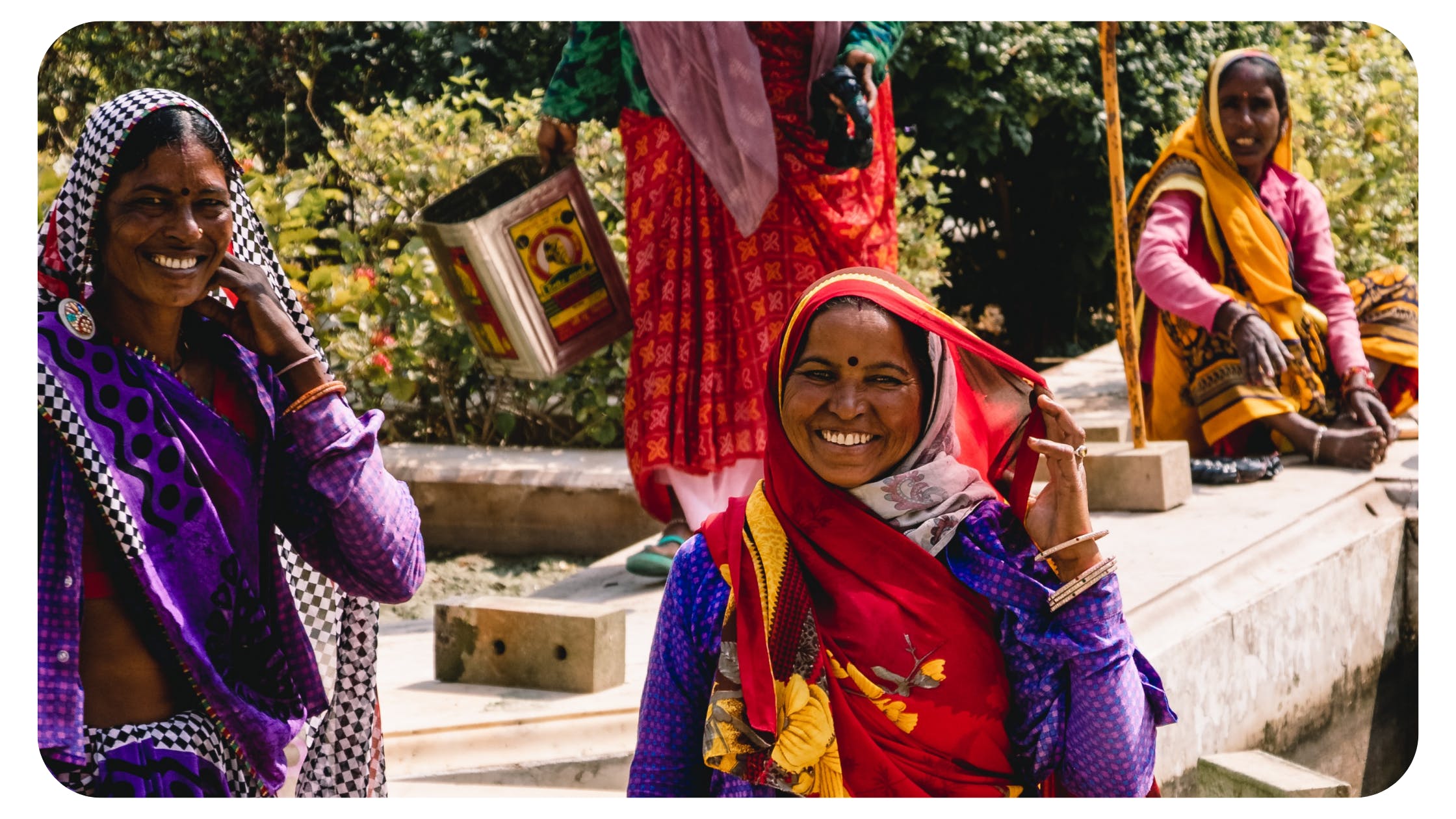
-3.png)
-1.jpeg?width=380&name=8a81c9a8-61ad-450f-a366-9c4b7a70237c_8G3bu04g%20(1)-1.jpeg)
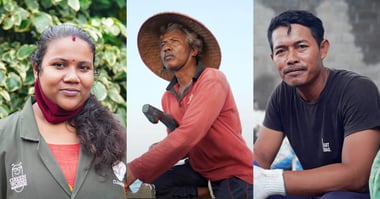
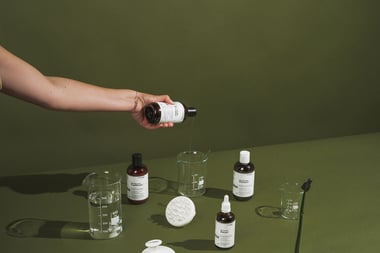
.webp?width=380&name=Founders%20(1).webp)
.jpg?width=380&name=_DSC7838%20(1).jpg)
%20(1).jpg?width=380&name=MRF%20opening%20photo%203%20(1)%20(1).jpg)
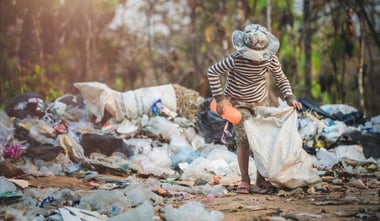
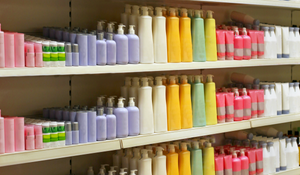

.webp?width=380&name=Dumped%20waste%20(1).webp)
